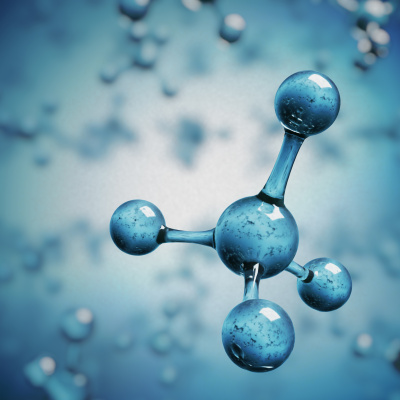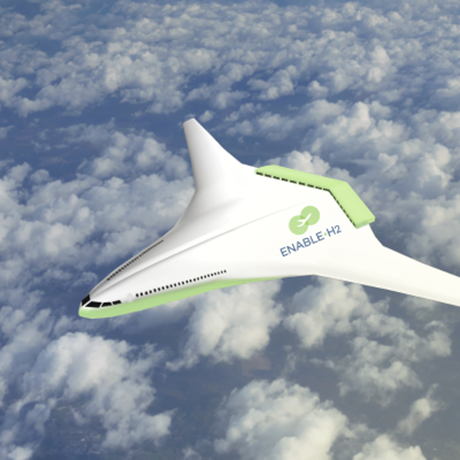Cranfield is a leading research and development centre for hydrogen.
We are creating a hydrogen ecosystem at our UK campus, linking projects and facilities in production, storage, materials, propulsion, usage, aircraft design and airport operations.
Our hydrogen-related work extends into many sectors including aerospace, energy, marine and automotive sectors. We are working with industry leaders in these spaces.
The Hydrogen Walk below shows the breadth of activity at Cranfield. Follow the hotspots to learn more about each area of Cranfield's research and development.
For more information on hydrogen at Cranfield University and airport, please email h2@cranfield.ac.uk.
Our research projects
- HyPER is an international collaboration led by Cranfield University, set to examine the potential for low-carbon hydrogen to be the clean fuel of the future. The project involves constructing a state-of-the-art 1.5MWth pilot plant to test an innovative hydrogen production technology that substantially reduces greenhouse gas emissions.
- The Global Hydrogen Production Technologies (HyPT) Center is a global consortium to develop hydrogen technologies responsibly with net zero emissions of carbon dioxide for real-world applications, embodying technical innovation, socio-economic factors and water-energy resource management.
- Enabling Cryogenic Hydrogen-Based CO2 Free Air Transport (ENABLEH2) is a Horizon 2020 project, funded by the European Commission, that provides thought leadership through revitalising enthusiasm in LH2 research for civil aviation by maturing key technologies to achieve zero mission-level CO2 and ultra-low NOx emissions, with long-term safety and sustainability.
- H2-IGCC: Developing new power generation technologies was part of a European collaboration which provided technical solutions to enable the combustion of hydrogen-rich syngas in gas turbines, forming part of the next generation of integrated gasification combined cycle (IGCC) power plants.
- Zero Emissions for Sustainable Transport (ZEST1) is an Airbus UK-led, ATI-funded project in which Cranfield is researching technologies for LH2 tanks, LH2 fuel system thermal management, LH2 safety and advanced sensors and gauging, airport infrastructure and ground operations for LH2-fulled aircraft.
- Out of Cycle Next Generation Highly Efficient Air Transport (ONEheart) is an Airbus-UK-led, ATI-funded project in which Cranfield is developing methods, processes and solutions for overall aircraft design, architecture and integration of LH2 and ammonia-fuelled novel aircraft concepts.
- Landing Advances for a New Decade One (LANDOne) is an Airbus UK-led, ATI-funded project in which Cranfield is contributing to landing system design, manufacturing and assembly solutions for next generation (including LH2-fuelled) aircraft.
- Hydrogen Engine System Technologies (HYEST) is a Rolls-Royce UK-led, ATI-funded project in which Cranfield is designing and testing a 'pre-burner' system for an aero-engine fuel conditioning system that will enable the phase change of LH2 to gaseous hydrogen for combustion in an aero-engine.
- Robustly Achievable Combustion of Hydrogen Engine Layout (RACHEL) is a Rolls-Royce UK-led, ATI-funded project in which Cranfield is researching aircraft and H2-fuelled propulsion system integration as well as safety and ventilation of H2-fuelled engine 'compartments'.
- LH2GT is a Rolls-Royce UK-led, ATI-funded project in which Cranfield is contributing to the development of technologies to control and transport the fuel from the aircraft’s LH2 tank to the engine combustor, including cryogenic pumping, fuel metering, system thermal management, intelligent control systems and component life optimisation.
- Future Engine Technology for the Control of Hydrogen (FETCH) is a MOOG Controls Limited-led, ATI-funded project in which Cranfield is contributing to a demonstrator for a fuel control system for H2-fuelled aero gas turbines.




